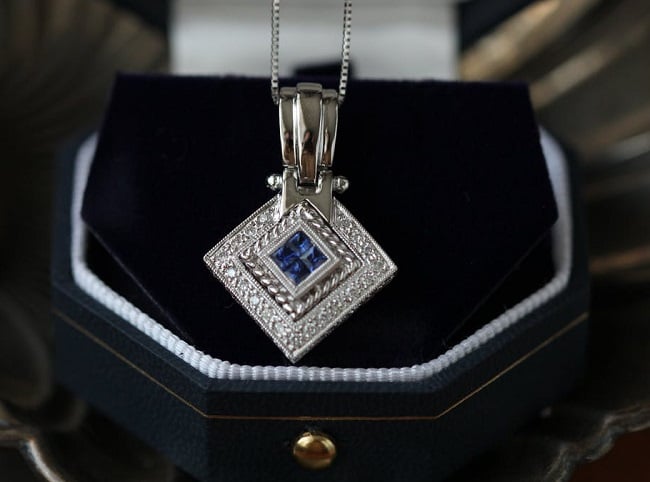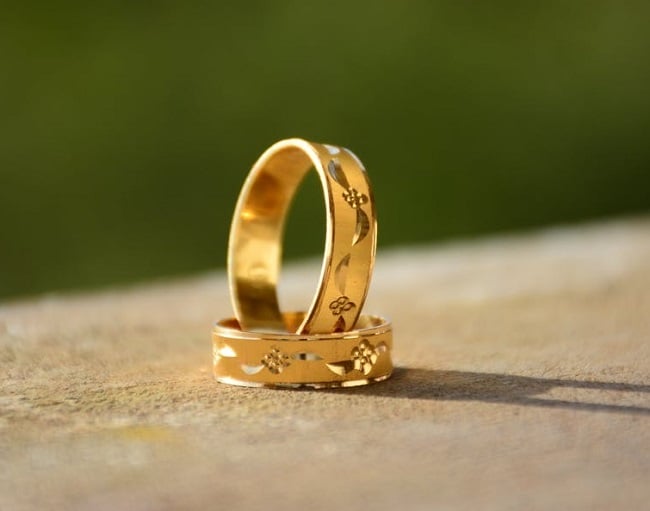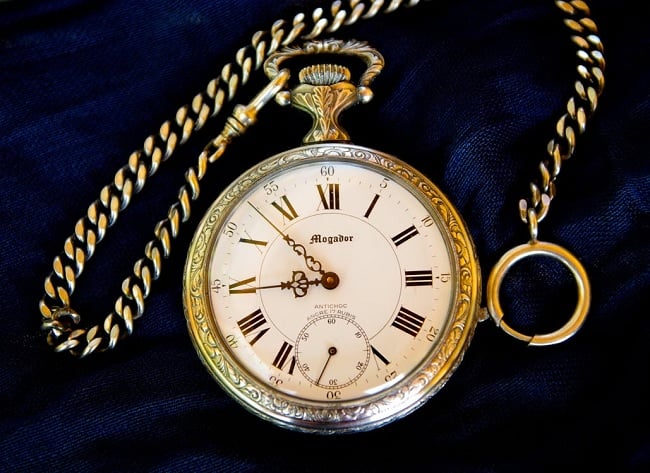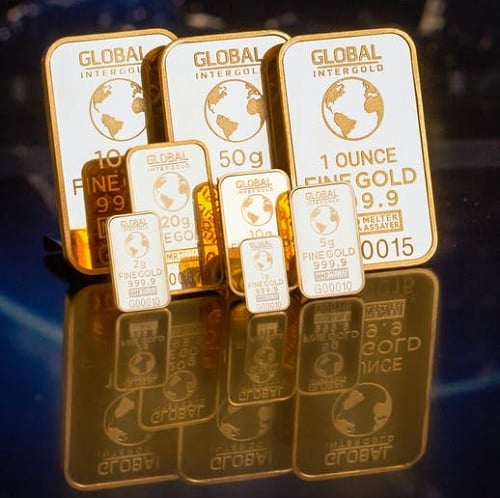Is precious metals a good career path? This is the question that many folks are asking today. We’re setting out to tell you everything you need to know about precious metals, careers as well as some common ways to invest in them.
Is Precious Metals a Good Career Path?
Precious metals is a good career path, but there are some caveats. Some jobs in the precious metal industry pay more than others. Others have more growth potential. Still, this is a rewarding field to work in, but you’ll want to do your research before making a career shift.
We’ll dig into the particulars of working in the precious metals industry as we go.
But first, what are precious metals?
What Are Precious Metals?
Precious metals are rare alloys that are highly valued due to a range of factors. Some factors that influence their price include industrial use, scarcity, historical value, and much more.
Some of the most popular precious metals include:
- Gold
- Silver
- Platinum
- Palladium
There are other precious metals, like rhenium, ruthenium, and rhodium, but the four above are staples in the industry.
While the value of precious metals can be influenced by market forces, one reason they are highly sought-after is that, as an investment, they typically weather volatility much better than other assets.
In fact, many experts and professional investors recommend allocating some of a portfolio to precious metals.
Many precious metal investing companies, such as Oxford Gold Group, provide helpful resources on their websites. They help people learn more about precious metals and what makes them lucrative investments and promising career options. Moreover, many of these websites are dedicated platforms for precious metal trading and job hunting. So if you’re interested, try reaching out to them.
Also, these aren’t just shiny alloys: these metals have a slew of sophisticated applications. For instance, gold is widely used in electronics, and palladium is a key component of many fuel cells.

What Is the Precious Metals Industry?
Just as it sounds, the precious metals industry is an umbrella of products and services that leverage precious metals to turn a profit.
Most folks think of career paths like jewelers, but there are plenty of other profitable precious metals careers that take advantage of these valuable assets. Others include precious metal brokers, precious metal workers, goldsmiths, and more.
This industry is exceptionally diverse, and there are a lot of fantastic opportunities. That being said, many precious metal careers, like jewelers, don’t expect to see much growth in the next decade.
Still, precious metals remain in high demand, and this doesn’t appear to be changing anytime soon.
How Do You Get a Career in Precious Metals?
There are so many careers in precious metals that there isn’t an exact answer to this question. That being said, most careers that deal in valuable metals do not require a college degree. But education is still necessary.
For instance, many metal-working careers are usually obtained through some sort of apprenticeship or trade school. One of the reasons people are drawn to this career path is because training is hands-on, and you don’t have to take years of additional education.
Something to also consider is that experts do not expect career growth in some of these industries. For instance, the Bureau of Labor and Statistics projects that the job growth for Jewelers and precious stone and metal workers will shrink by 1% by 2030.
These numbers aren’t representative of the entire precious metal industry, but precious metal worker is a very broad category of professions.
Careers in Precious Metals
The precious metals industry is packed with rewarding career paths. Whether you want to buy or sell precious metals or work hands-on in the field, the options are endless.
We’re going to break down a range of careers in precious metals so keep reading for a look at responsibilities as well as annual salaries.
First, let’s take a look at precious metals brokers.

Precious Metals Brokers
Median Salary: $58,714
A precious metal broker is an industry intermediary who buys and sells rare metals to institutions or individuals. Some also can help procure valuable gemstones, such as diamonds, emeralds, rubies, sapphires, and more.
Metal brokers often have experience in business or finance. They will also have experience working at a metal banking institution or trading in the commodity market.
A metal broker has many responsibilities that include working with clients, trading on behalf of investors, managing risk, understanding commodities laws, etc. You need to become an encyclopedia for all things precious metals. However, this career path doesn’t require the same set of skills as precious metals workers.
Precious metal brokers must also maintain relationships with many stakeholders, like mints, refineries, goldsmiths, and coin dealers.
Precious Metal Workers
Median Salary: $26,050 to $77,330
Precious metal workers is a catch-all term for folks who do hands-on work with precious metals.
Some precious metal workers work includes:
- Jewelers
- Goldsmiths
- Engravers
- Jewelry designers
- Restorers
- Miners and refiners
This segment of the precious metals sector typically requires immense specialization. For instance, you have broad specializations, such as jewelers, but there are subdivisions of these roles.
Some professionals work with a dedicated precious metal. For instance, a goldsmith is a precious metal worker who deals exclusively in shaping, polishing, molding, and refining gold.

Jewelers
Median Salary: $42,484
Jewelers work with luxurious metals and precious stones to create ornate products, such as rings, bracelets, earrings, and much more. A jeweler will often incorporate other rare materials into their pieces, including diamonds, sapphires, rubies, etc.
Jewelry making is a more hands-on career, which means that it will likely appeal to a smaller segment of the population. But if you’re skilled with your hands, you might want to look into taking on an apprenticeship as a jeweler.
While you do not necessarily need these skills to run your own jewelry store, it certainly helps to understand the processes involved through first-hand experience.
Goldsmiths
Median Salary: $45,648
Many of the roles of a goldsmith intersect with jewelers, but the main distinction is that they work exclusively with gold. Jewelers, on the other hand, have a broader set of metals that they work with.
Goldsmiths are skilled craftsmen who create or repair jewelry and other popular items. They also make everyday items such as rings, necklaces, spoons, and belt buckles. While it may seem a little silly, some people pay top dollar for handcrafted buckles or spoons.
Goldsmiths perform their work with tools such as hammers and chisels to create intricate designs. It may sound a bit rudimentary, but goldsmithing is a very sophisticated career path that requires immense dexterity and a keen eye.

Engravers
Median Salary: $35,000
Engravers work within a very specific niche of the metalworking industry, as they solely focus on etching designs, words, and patterns into metal.
While many jewelers can engrave, sometimes it helps to have a specialized skill set, tools, and equipment. Also, engravers don’t just work on jewelry: they provide engraving on trophies, identification plates, circuit boards, and more.
Jewelry Designers
Median Salary: $50,000
Jewelry design is a worthwhile career path for big-picture folks who prefer to work on art at the conceptual level. They plan and design jewelry before the crafting process.
Many jewelers create their own designs, but it helps to have someone take on a dedicated role to bring a customer’s vision to life.
Jewelry designers must have a detailed understanding of the crafting process. This ensures that the designs can stand the test of time, as many precious and luxurious metals are delicate.

Antique Restorers
Median Salary: N/A
Antique restoration is an amazing career path for someone who wants to play a role in restoring and preserving cherished jewelry or a piece of history.
This career doesn’t exclusively work with jewelry: some of these roles also include restoring furniture, artwork, cloth, etc. But jewelry is a subdivision.
Aside from helping private individuals restore their precious metals to tip-top shape, you could also work with museums to bring artwork back to life.
The average annual salary for this career is difficult to pinpoint, as most estimates include antique furniture repairs, which is not directly linked to the luxurious metals industry.
Precious Metals Miners
Median Salary: $48,550
Precious metals miners deal in the location and extraction of precious metals. Many companies operate as miners and refiners, but this is not always the case.
This sector has a wide range of positions available, including miners, engineers, plant technicians, and more.

Precious Metals Investor
Median Salary: N/A
Most folks don’t invest in precious metals as a dedicated career; rather, it is done to strengthen investment portfolios or an individual retirement arrangement (IRA).
There are a few ways to invest in metal:
- Buying physical gold or precious metals
- Trading ETFs, mutual funds, and futures on the commodities market
- Invest in companies that operate in the precious metals industry
These are some solid options for someone who wants to make money from precious metals without needing to work in the industry.
While all these options are viable, investing in physical precious metals might be the most difficult to start.

One challenge is that precious metals, like gold and silver, are typically more expensive when purchased in small amounts. Buying small bullion, like gold coins, might be more accessible, but it is usually more costly than buying larger bars.
This is because there’s typically an extra cost (premium) built into the bullion for processing and shaping it.
Plus, there are safety and security concerns associated with physically storing any valuable metal.
You could pay to put your metal in storage, but that’s one more added expense.
Investing in precious metals through ETFs and the other options above could offer more liquidity and cut down on overall costs. You’ll still want to do your research with all of these undertakings, as less costly does not mean it’s inexpensive.

Still, precious metals can be a good investment. They can also be leveraged in an IRA. Though, most IRA services focus specifically on gold and silver.
What Is the Most Profitable Precious Metal?
Gold is the most profitable precious metal for a variety of reasons, but its potential for gradual appreciation is at the top of the list.
So if you are a jeweler or a precious metals provider dealing in gold, your goods are more likely to outpace inflationary pressures that could artificially lower the value of your product over time.
Though, craftsmanship also plays a role in the price of precious metal goods.
Gold is also considered to have more liquidity than other luxurious metals, as it’s the most actively traded of the bunch. So gold could be the easiest way to enter the precious metals market.
Is Precious Metals a Stable Career Path?
Precious metal is a fairly stable career path. It has been around for thousands of years, and it will probably be around for many more.
That being said, current projections for growth in the industry seem stagnant.
Also, not all metals are created equal: careers in gold and silver are much easier to jump into, as they are commonly found in jewelry.
Other precious metals, like rhodium and ruthenium, have more industrial uses that don’t translate to some of the more accessible jobs available.

You can find more jobs in precious metals on sites like Jooble.
What Is the Future of Precious Metals?
There’s no such thing as a crystal ball, but many experts believe that precious metals could continue to see a rise in value over time.
Gold and palladium have a ton of applications that could play a big role in emerging technologies. We’re always going to need microchips and fuel cells.
Growth forecasts may be a little bleak for metal workers, but there are some areas in the industry that could see growth. Mining, for example, will be vital for meeting growing demand.
Final Thoughts
A precious metals career could be a great option if you’re passionate about the craft. But stagnant growth prospects for a large segment of the industry could turn many people away.
Ultimately, what constitutes a good career will largely depend on what you’re looking for in a job.
If you like working with your hands, becoming a precious metals worker could provide you with a fulfilling and profitable road to retirement.
If you’re a good negotiator, then becoming a precious metals broker might be a great fit and play into your strengths.
You can also invest in luxurious metals through the stock market.
Something to consider is that working in precious metals involves risks. Even if the underlying asset is stable, these jobs are not immune to forces like the labor market or automation.
Still, there are career growth opportunities — if you know where to look.


 Tags:
Tags:










